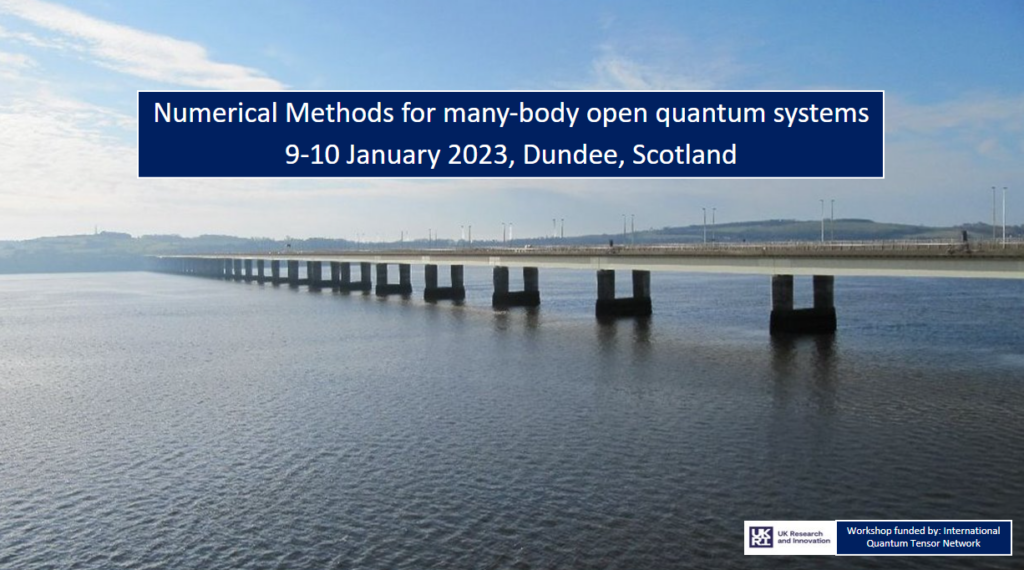
The workshop “Numerical methods for many-body open quantum systems” took place in Dundee on 9th and 10th January 2023, with 44 participants. The meeting was organised by Brendon Lovett and Jonathan Keeling from St Andrews University and Peter Kirton from the University of Strathclyde. This meeting was inspired by a sequence of similar meetings that had taken place around Europe prior to 2020, and sought to revive discussions among this international community.
The meeting featured a series of talks, covering a broad range of the latest developments on techniques and methods developed in Europe for modelling many-body open quantum systems. These ranged from the use of tensor networks and machine learning to the limitations of master equations and mean field theories. We also learned about different variational approaches and work on using the Wigner and positive P representations.
The meeting also included a focussed discussion on how the community can help to develop and maintain open software. This explored current best practice, what challenges groups have encountered when releasing and maintaining software, and the resources that would be needed to help support this in the future. We identified a number of challenges, including the extent to which good practice is currently rewarded, the interaction between the continuous development associated with useful codes and the “snapshot” that is favoured by current publication and citation practices, and the effort associated with documenting and maintaining code.
Some practical suggestions to help support better practice in the future include the possibility of hosting an active list of open-source software projects associated with the field of many-body open quantum systems, perhaps maintained via a git repository to allow pull requests to update the listing. Other ideas that could be explored in the future include running or hosting coding bootcamps to bring together researchers working on similar questions.